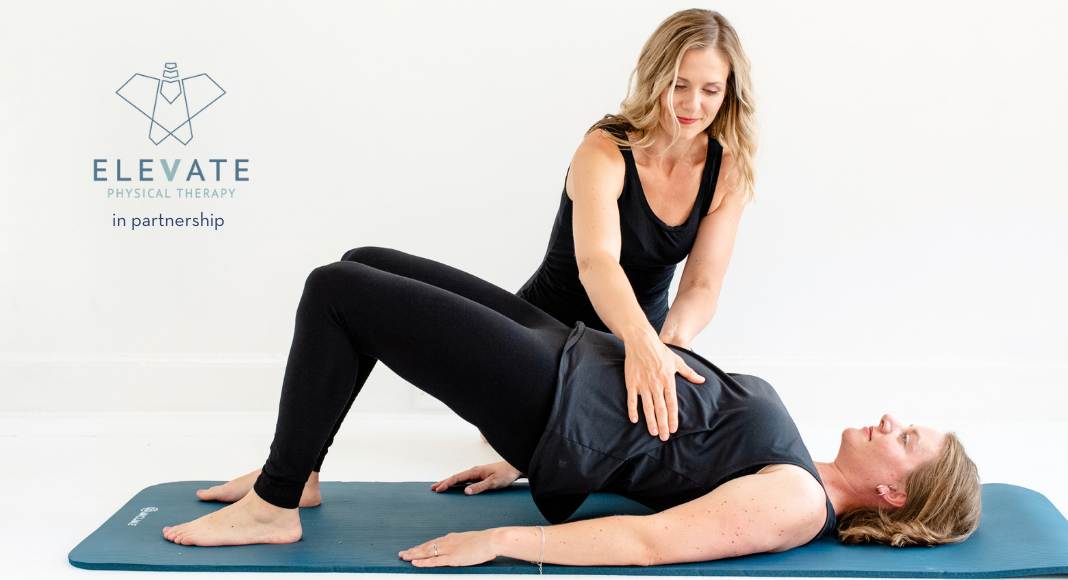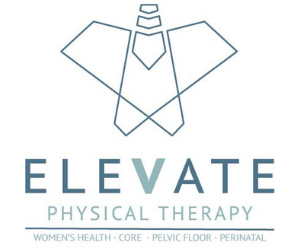 Pelvic floor therapy from Elevate Physical Therapy is the best thing I didn’t know I needed. If you’re concerned about healing your pelvic floor, know that you’re not the only one.
Pelvic floor therapy from Elevate Physical Therapy is the best thing I didn’t know I needed. If you’re concerned about healing your pelvic floor, know that you’re not the only one.
The standard four-week postpartum appointment serves as an important checkpoint with your OB. Is everything healing as it should? Are you feeling the baby blues? What are you using for birth control?
After that, we should be good to go, right? No. Just no. There is much more healing to come.
My body felt broken after two pregnancies, vaginal deliveries, and well-fed babies toted on my hip – and it began to rebel.
Like most moms, I didn’t take the time to rediscover my center of balance after walking for months with a bowling ball on my pelvis. I employed whatever muscles I could find to do the job of my weak core. My posture became S-shaped: chin jutted forward, shoulders shrugged up to my ears, and lower back concaved.
Then, I paid for it… Back, neck, and shoulder pain. Tingling and numbness on my right side. Bladder leaks.
I visited nearly a dozen specialists over the course of a year to rule out anything serious. Then, my OB referred me to Dr. Stacey Hendricks, Pelvic Floor Specialist and Owner of Elevate Physical Therapy.

Stacey and her colleagues are passionate advocates for women’s health and specialists in perinatal, pelvic floor, and core rehabilitation.
I showed up to get my mild, but annoying, incontinence issues addressed. I got way more than I anticipated. Stacey’s comprehensive, head-to-toe assessment revealed that all my pain could be tied to years of poor posture, plus the effects of pregnancy.
Finally, a doctor who saw how all my issues were interconnected… and treatable.
I had some work to do. But, Elevate’s treatment program is tailored to meet your needs and pace.
A lot of my treatment was unlearning bad habits and learning how to use my muscles properly.
Stop shallow chest breathing, and start deep breathing from the diaphragm.
Stop tightening the upper abs, and start strengthening the abs around and below the belly button.
Stop using your mid-back to do all your lifting, and start thinking before you bend.
Those were just the first steps. My program included core strengthening exercises with gradual intensity levels, massage, stretching, and dry-needling. There is a bit of occupational therapy incorporated, too: how to pick up your kids and their toys, how to unload the dishwasher, how to lift the laundry basket, and even how to jump.
I learned that the pelvic floor is the foundation for how the body functions. These appointments are like crash courses in anatomy and physiology, paired with a bit of counseling. The doctors listen, relate, and truly want to know what’s going on with you.
I used to think, I can’t be the only woman who feels this way. But, why have I never heard anyone else talk about it?
At Elevate, they assure you that you’re not the only one, and it’s time to start talking about it.
Postnatal care is just part of their service offering. They address prenatal issues and birth preparation, clogged duct management, healing for diastasis recti (ab separation), lymphedema and cancer care, and pelvic pain therapy.
My tidbit of advice? Stop with the kegels. You may not even be doing them right. Stop with the taboos; you’re not the only one, by a long shot. Stop with the pain and pee surprises; it doesn’t have to be this way.
See Stacey, Ricci, or Katie at Elevate Physical Therapy today.














